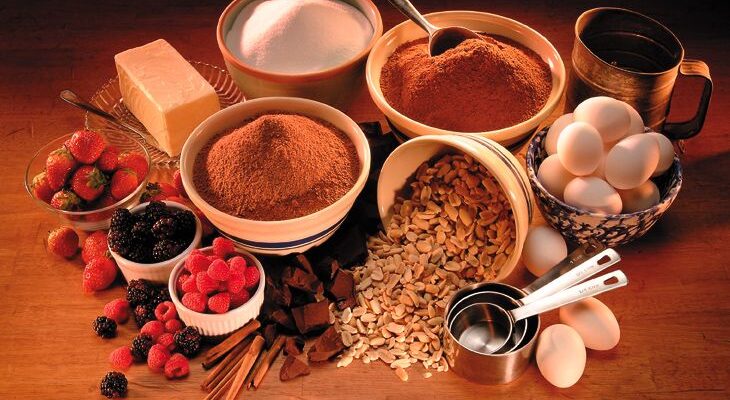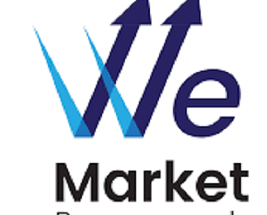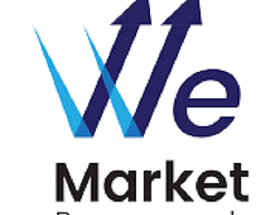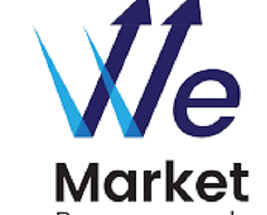Market Overview:
The halal ingredients market refers to the market for ingredients that are permissible according to Islamic law, which includes not only food and beverage products but also cosmetics, pharmaceuticals, and personal care products. This has been growing in recent years, driven by the increasing demand for halal products among the Muslim population worldwide.
The halal ingredients market is composed of various ingredients such as amino acids, enzymes, flavors and colors, gelatin, starches, sweeteners, and others. These ingredients are used in various applications such as food and beverage, cosmetics, pharmaceuticals, and personal care products.
The food and beverage industry is the largest application segment in this , with products such as meat and poultry, dairy products, and confectionery being the most popular. The cosmetics and personal care segment is also growing rapidly, with increasing demand for halal-certified products that do not contain ingredients derived from animals or alcohol.
The halal ingredients market is also driven by various factors such as the increasing Muslim population worldwide, rising disposable incomes, and growing awareness about halal-certified products. Additionally, the increasing number of halal certifications being issued by various organizations has also been a key driver for the market.
Get Free Exclusive PDF Sample Copy of This Research: https://analyticsmarketresearch.com/sample-request/halal-ingredients-market/47849/
The Asia Pacific region is the largest market for halal ingredients, with countries such as Indonesia, Malaysia, and Pakistan being major contributors to the market. The Middle East and Africa region is also a significant market for halal ingredients due to the high demand for halal products in the region.
Overall, this is expected to continue to grow in the coming years, driven by the increasing demand for halal-certified products and the growing awareness of halal ingredients.
Covid-19 Impact:
The COVID-19 pandemic has had a mixed impact on this . On one hand, the pandemic has led to disruptions in supply chains and distribution networks, which has resulted in reduced production and sales of halal ingredients. On the other hand, the pandemic has also led to increased demand for halal-certified products, particularly in the food and beverage sector.
The pandemic has caused significant disruptions in the global food supply chain, leading to a shortage of raw materials and ingredients. This has affected the production of halal ingredients, which has resulted in supply chain disruptions and increased prices. The restrictions on international trade and travel have also led to delays in the delivery of halal ingredients, which has impacted the production of halal-certified products.
However, the pandemic has also led to increased demand for halal-certified products, particularly in the food and beverage sector. With consumers becoming more health-conscious and seeking out products that meet their dietary and religious requirements, there has been a growing demand for halal-certified products. This has led to increased investments in this and shift towards more sustainable and ethical production practices.
Overall, the COVID-19 pandemic has had a mixed impact on this , with both positive and negative effects. While the pandemic has caused disruptions in the supply chain and distribution networks, it has also led to increased demand for halal-certified products, which is expected to drive the growth of the halal ingredients market in the coming years.
Market Dynamics:
Drivers:
There are several drivers for the growth of the halal ingredients market:
- Increasing Muslim population: The global Muslim population is increasing rapidly, particularly in countries such as Indonesia, Malaysia, and Pakistan, which are major contributors to this As the Muslim population grows, there is a corresponding increase in demand for halal-certified products.
- Growing awareness of halal-certified products: There is a growing awareness among consumers about halal-certified products and the benefits they offer, such as improved quality and safety. As consumers become more health-conscious and seek out products that meet their dietary and religious requirements, there is a growing demand for halal-certified products.
- Rising disposable incomes: As disposable incomes rise, consumers are willing to pay more for premium products that meet their dietary and religious requirements. This has led to an increase in demand for halal-certified products, particularly in the food and beverage sector.
- Increased investments in the halal ingredients market: With the growing demand for halal-certified products, there has been an increase in investments in the halal ingredients market. This has led to the development of new products and the adoption of more sustainable and ethical production practices.
- Government support for halal certification: Governments in countries with significant Muslim populations are increasingly supporting the development of halal certification systems and promoting the use of halal-certified products. This has led to the development of new markets for halal ingredients and an increase in demand for halal-certified products.
Overall, these drivers are expected to continue to support the growth of the halal ingredients market in the coming years.
Regional Analysis:
The halal ingredients market can be analyzed regionally as follows:
- Asia-Pacific: The Asia-Pacific region dominates this , with countries such as Indonesia, Malaysia, and Pakistan being major contributors. The region has a large Muslim population and is home to several major halal ingredients manufacturers. The increasing demand for halal-certified products in the food and beverage sector, coupled with rising disposable incomes, is driving the growth of the halal ingredients market in the region.
- Middle East & Africa: The Middle East & Africa region is also a significant contributor to this , with countries such as Saudi Arabia, UAE, and Egypt being major markets. The region has a large Muslim population and a growing demand for halal-certified products in the food and beverage sector. The region is also home to several major halal ingredients manufacturers.
- Europe: Europe is a growing market for halal ingredients, with countries such as France, Germany, and the UK being major contributors. The increasing demand for halal-certified products, particularly in the food and beverage sector, is driving the growth of the halal ingredients market in the region.
- North America: North America is a relatively small market for halal ingredients, but it is growing rapidly. The increasing demand for halal-certified products, particularly among the Muslim population, is driving the growth of the halal ingredients market in the region.
Overall, the Asia-Pacific and Middle East & Africa regions are expected to continue to dominate the halal ingredients market in the coming years, with increasing demand for halal-certified products driving the growth of the market in these regions. However, the growing awareness and demand for halal-certified products in Europe and North America are also expected to contribute to the growth of the halal ingredients market in these regions.
Market Segmentation:
The halal ingredients market can be segmented based on various factors such as type, application, and region. Here are some of the key segments in the market:
By Type:
- Ingredients for food & beverage: This segment includes ingredients such as flavors, emulsifiers, enzymes, colors, and preservatives used in the production of halal-certified food and beverage products.
- Ingredients for pharmaceuticals: This segment includes ingredients such as excipients, binders, and fillers used in the production of halal-certified pharmaceutical products.
- Ingredients for personal care & cosmetics: This segment includes ingredients such as emollients, humectants, and surfactants used in the production of halal-certified personal care and cosmetic products.
To Know More, Click here: https://analyticsmarketresearch.com/reports/halal-ingredients-market/47849/
By Application:
- Food & Beverage: This segment includes halal-certified food and beverage products such as processed meat, bakery products, dairy products, and beverages.
- Pharmaceuticals: This segment includes halal-certified pharmaceutical products such as tablets, capsules, and syrups.
- Personal care & cosmetics: This segment includes halal-certified personal care and cosmetic products such as skin care, hair care, and oral care products.
By Region:
- Asia-Pacific: This segment includes countries such as Indonesia, Malaysia, and Pakistan, which are major contributors to the halal ingredients market.
- Middle East & Africa: This segment includes countries such as Saudi Arabia, UAE, and Egypt, which are also significant markets for halal ingredients.
- Europe: This segment includes countries such as France, Germany, and the UK, which are growing markets for halal ingredients.
- North America: This segment includes countries such as the US and Canada, which are relatively small markets for halal ingredients, but are growing rapidly.
Overall, the halal ingredients market is expected to continue to grow as the demand for halal-certified products increases, particularly in the food and beverage sector. The development of new and innovative halal ingredients, as well as the expansion of halal certification systems in different regions, is also expected to contribute to the growth of the market.
Competitive Landscape:
Some of the key players in the global halal ingredients market include:
- Archer Daniels Midland Company
- Kerry Group
- Barentz International
- Cargill, Inc.
- BASF SE
- PureCircle
- DowDupont Inc.
- Koninklijke DSM N.V.
- Symrise AG
- Halagel (M) Sdn. Bhd.
These companies are involved in the production and supply of halal ingredients for various applications such as food and beverage, pharmaceuticals, and personal care and cosmetics. They are investing in research and development activities to develop new and innovative halal ingredients to meet the growing demand for halal-certified products. They are also expanding their operations in different regions to cater to the growing demand for halal ingredients in various markets. The increasing demand for halal ingredients has also led to collaborations and partnerships among key players to expand their product portfolios and enhance their market presence.



